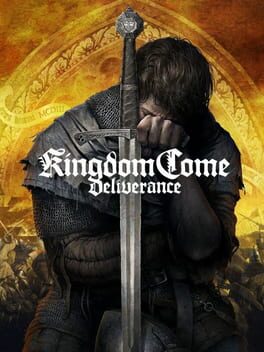This review doesn’t contain direct spoilers, but it reveals a little bit of the game’s charm that would ideally be discovered on your own. If you were already intending to play it, I would say to just go ahead with my blessing.
Kingdom Come: Deliverance contains one of my favorite sidequests in any game I’ve ever played, and it’s all the better for being completely unmarked. In fact, most people won’t even perceive it as a sidequest, since it’s simply the result of a few systems interacting in a unique way. The goal of this quest is to save your game.
In a move to make the game feel more like reality, your ability to save is limited to sleeping in a secure bed, doing a save/quit, or consuming a certain potion. Since beds can’t be found just anywhere, and bouncing your game every time you want to save is annoying, one of the first things players will want to do is procure these potions. At a merchant, they’re 100 groschen each, and when late-game armor is 1.5k groschen, you can see how unaffordable it is to constantly chug them down. The far better alternative is to buy the recipe and use it to brew as many as you want. So, you do, and open up the recipe to see that you can’t read it. You’re a blacksmith’s son in early 15th century Bohemia, of course you can’t read. So, you have to go talk to people and find out where you can learn, because no one around you knows how to read either, and if they do, they’re too busy to deal with a peasant like you. Eventually you’ll get a good tip to find someone in a certain village, so you walk all the way there, ask around for that person, pay them, and learn the basics, which still doesn’t make the text completely clear. You have to keep reading to raise your skill, on top of going back to actually find the ingredients and learn how to do the brewing.
Is doing all that necessarily fun? No, and the way saving is limited may not even be a great idea to start with, but I highly value what’s being conveyed with this sort of structure. The game is far from actual realism, but these challenges still present the reality of a character confronted with all the trials of his time. As you overcome these challenges and start to thrive, it feels like a genuine accomplishment, and having other characters react to that and respect you more is incredibly rewarding. Dealing with the clunkiness endemic to games focused on realism may outweigh the satisfaction for a lot of people, especially when the plot itself is underwhelming, but it’s the little stories like this personal quest that made me really appreciate the game. They’re the type of stories you can’t experience just by watching or reading, the kind that you’re actually a part of, and any game that’s able to build that sort of player involvement is always worth a look.
Kingdom Come: Deliverance contains one of my favorite sidequests in any game I’ve ever played, and it’s all the better for being completely unmarked. In fact, most people won’t even perceive it as a sidequest, since it’s simply the result of a few systems interacting in a unique way. The goal of this quest is to save your game.
In a move to make the game feel more like reality, your ability to save is limited to sleeping in a secure bed, doing a save/quit, or consuming a certain potion. Since beds can’t be found just anywhere, and bouncing your game every time you want to save is annoying, one of the first things players will want to do is procure these potions. At a merchant, they’re 100 groschen each, and when late-game armor is 1.5k groschen, you can see how unaffordable it is to constantly chug them down. The far better alternative is to buy the recipe and use it to brew as many as you want. So, you do, and open up the recipe to see that you can’t read it. You’re a blacksmith’s son in early 15th century Bohemia, of course you can’t read. So, you have to go talk to people and find out where you can learn, because no one around you knows how to read either, and if they do, they’re too busy to deal with a peasant like you. Eventually you’ll get a good tip to find someone in a certain village, so you walk all the way there, ask around for that person, pay them, and learn the basics, which still doesn’t make the text completely clear. You have to keep reading to raise your skill, on top of going back to actually find the ingredients and learn how to do the brewing.
Is doing all that necessarily fun? No, and the way saving is limited may not even be a great idea to start with, but I highly value what’s being conveyed with this sort of structure. The game is far from actual realism, but these challenges still present the reality of a character confronted with all the trials of his time. As you overcome these challenges and start to thrive, it feels like a genuine accomplishment, and having other characters react to that and respect you more is incredibly rewarding. Dealing with the clunkiness endemic to games focused on realism may outweigh the satisfaction for a lot of people, especially when the plot itself is underwhelming, but it’s the little stories like this personal quest that made me really appreciate the game. They’re the type of stories you can’t experience just by watching or reading, the kind that you’re actually a part of, and any game that’s able to build that sort of player involvement is always worth a look.
